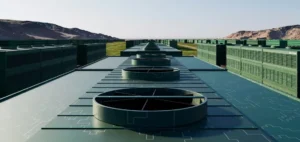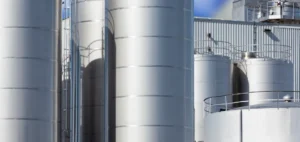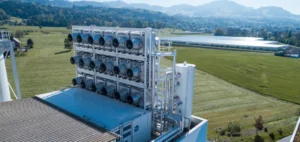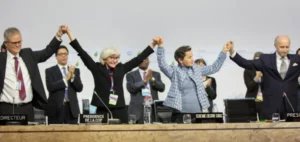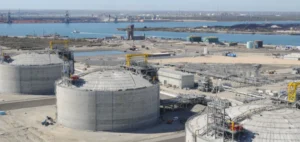Hanwha Power Systems Co., Ltd., a leading South Korean industrial energy solutions provider, has signed a Memorandum of Understanding (MOU) with TC Energy, a key player in natural gas transportation infrastructure in North America. This partnership aims to develop and commercialize an innovative Waste Heat Recovery (WHR) technology utilizing supercritical CO₂ (sCO₂) to meet the growing demand for clean and emission-free energy.
The pilot project will be implemented at a compressor station located in West Virginia. The proposed sCO₂ system will capture the waste heat from gas turbines used in compressor stations and convert it into carbon-free electricity. This solution provides a cost-effective and sustainable alternative, minimizing greenhouse gas emissions and fossil fuel dependency.
Commitment to Emission Reduction
This technology marks a significant step toward carbon neutrality in the oil and gas industry. It is part of a broader strategy to maximize the energy efficiency of existing infrastructures while reducing their environmental impact.
Justin (Koo Yung) Lee, CEO of Hanwha Power Systems, emphasized the strategic importance of this partnership: “This agreement with TC Energy represents a critical step toward proving the commercial viability of sCO₂ power generation systems. We are committed to expanding this technology across multiple sites to support the global energy transition.”
sCO₂ Technology: An Innovative Solution
Supercritical CO₂ is a fluid that combines the properties of both gas and liquid when subjected to specific temperature and pressure conditions (above 31°C and 74 bar). Hanwha Power Systems leverages this characteristic to create a compact, efficient, and environmentally friendly energy production system. Operating in a closed-loop, this system consumes no water and emits no additional carbon, meeting strict climate policy requirements.
A Strategic Partnership for the Energy Future
By partnering with TC Energy, which operates a vast pipeline network across North America, Hanwha Power Systems has an ideal platform to validate and scale this technology. The pilot project could become a benchmark in industrial waste heat recovery, paving the way for broader deployments and significantly contributing to emission reductions in the energy sector.
Hanwha Power Systems continues to diversify its technological solutions, including hydrogen and ammonia turbines. With this agreement, the company reinforces its role as a pioneer in designing sustainable and innovative energy solutions.


















